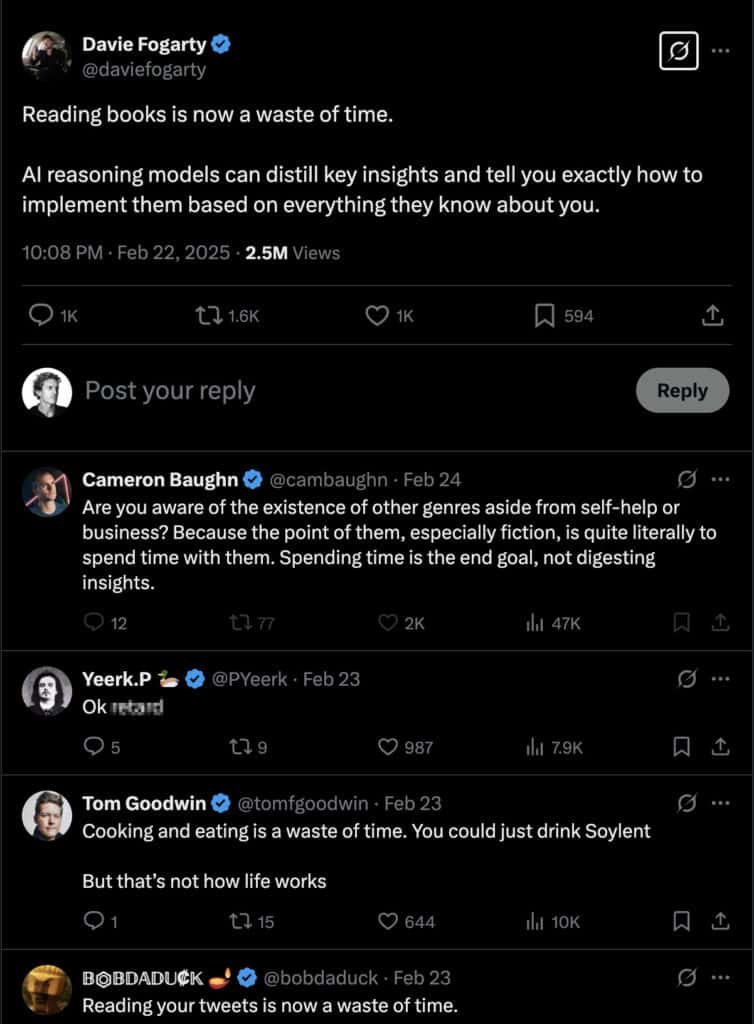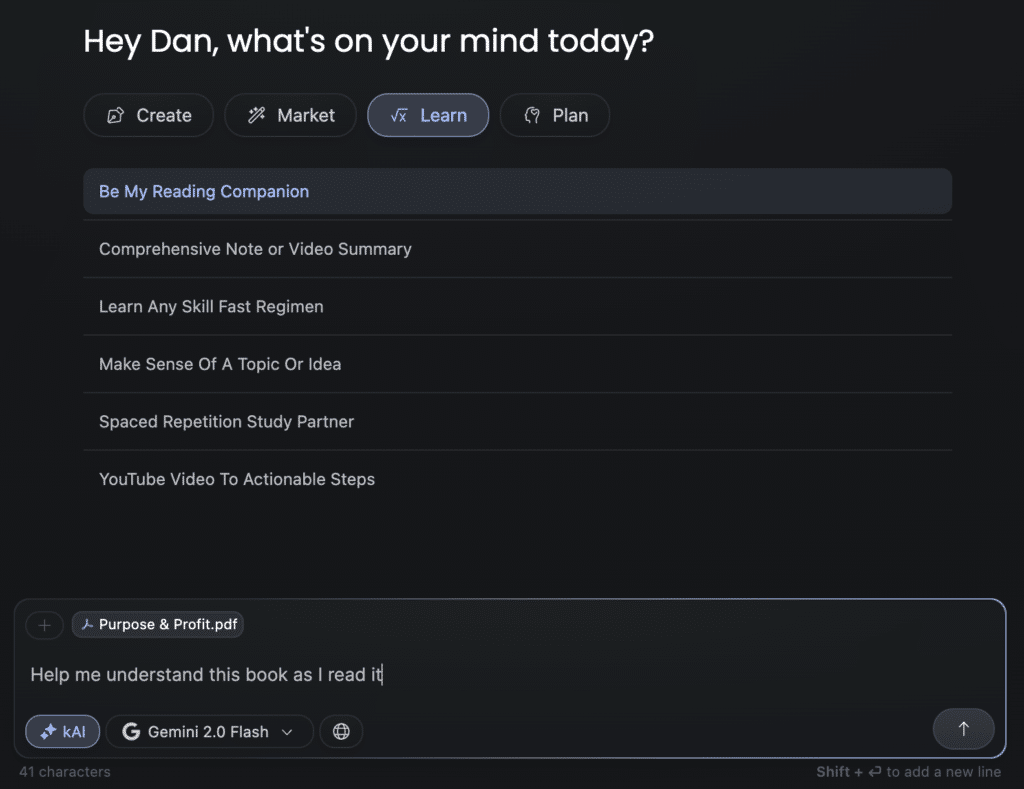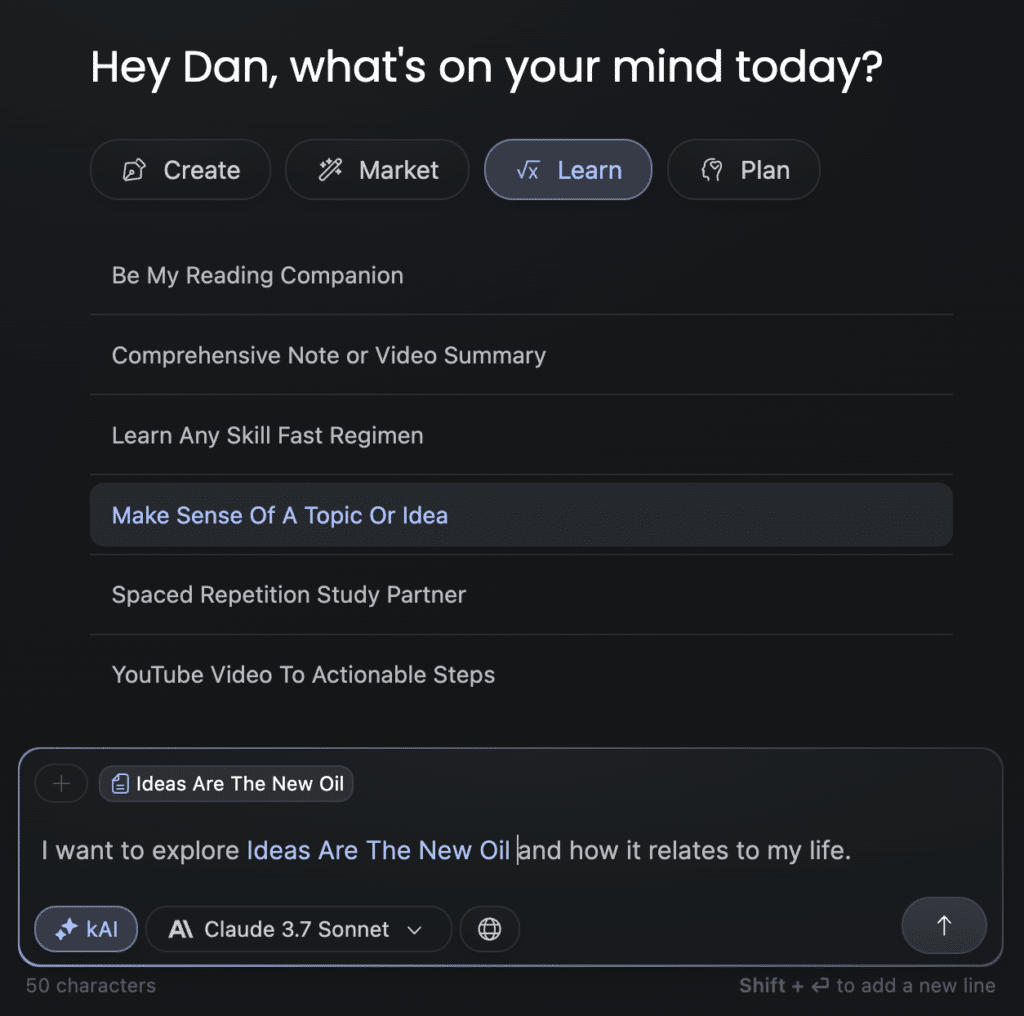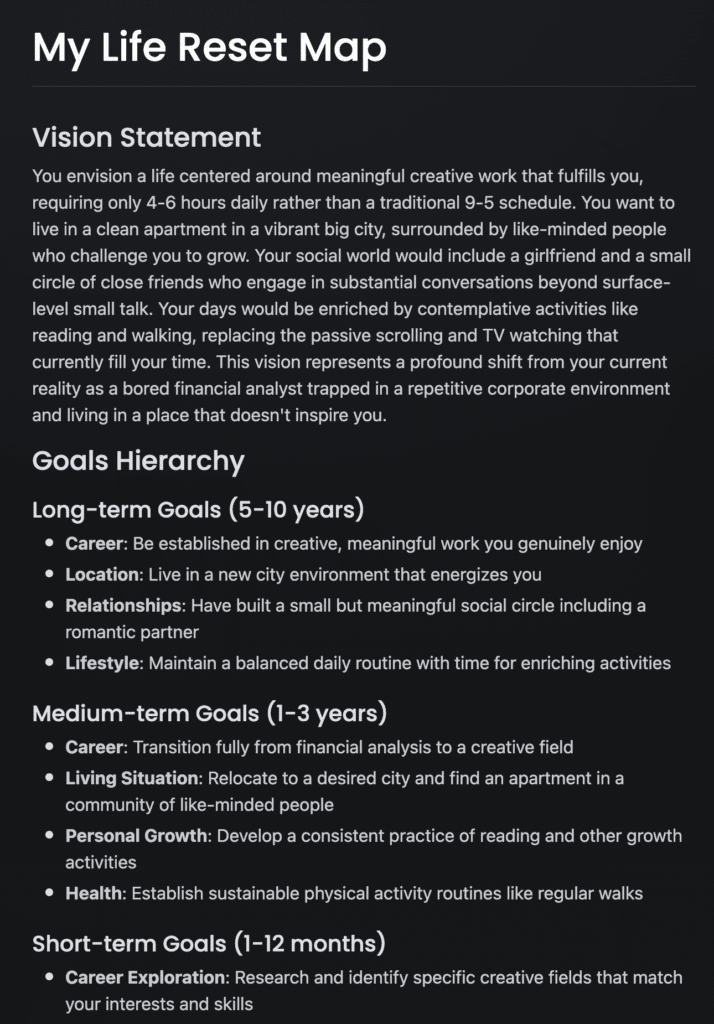At first, I was upset.
Now, I just feel bad for this guy:

There’s some truth behind what he’s saying, but that’s because most people, in general, don’t know how to read.
Not because they’re illiterate, but because they learned how to read in a Prussian style education system designed to create obedient soldiers, compliant citizens, civil servants, and well-behaved workers by focusing on:
- Mandatory attendance
- Training for teachers
- National curriculum and testing
- Division of students by age
- The concept of grade levels
Reading, to most people, is a performative act.
They read to find specific information for a “test,” be it a school test or a life test.
They read to show others that they’ve accomplished something, like how people flex that they’ve somehow both read and retained information from 52 books in a year.
They avoid reading difficult books because if they don’t understand it, what’s the point?
Here’s the thing.
You don’t read to find a specific answer.
That’s just stupid. Why would you waste 8 hours reading a book just to find a few steps to accomplish something when you can type a question into Google, Reddit, or now AI?
If you need to figure out how to be more productive or start a business, reading a book on it is the last place you should look (if you’re actually trying to learn, rather than to feel as if you made progress by reading the book itself).
If you’re trying to get a big picture understanding of things, then yes, a book is useful for that, but I’d argue that intelligent and calculated research is still better.
But that doesn’t mean reading is irrelevant.
In fact, if you want to become the type of person who is more productive, owns a business, or is in good health (not just a person who knows how to do those things)that requires behavior change, which requires a fundamental rewiring of your mind—and that doesn’t come from searching for specific information.
Most people are missing out on the plethora of life changing benefits that come from reading.
Why Smart People Read
Yes, AI gives you access to almost all known information in the world.
And if we’ve learned anything about the rise of AI, it’s that even when people have access to any answer they could ever want, they don’t do anything different with their lives. Most people are doing the same things they’ve always done.
It’s never been about how much you know. It’s always been about knowing how much you don’t know. You can only cook with the ingredients you have.
Now, you already can find the information you need to make millions of dollars, build an aesthetic physique, or anything else you could ever want to achieve in your life, but even if people knew what to look for, where to look for it, and how to apply the information they found, their life wouldn’t change all that much.
Because this isn’t an information problem, it’s an identity problem.
Your identity is reflected in your daily choices, and if you observe most people, they aren’t trying to do anything by their own desire. They may search for new information, but it’s not to make a change in their life, it’s to feel as if they are making progress by hoarding information to sound smart or look different without actually doing anything different. They were conditioned to go to school, get a job, repeat the same day for 45 years, and hope that one day they can retire happy. Those are the goals their mind is automatically trying to achieve. Those are the goals that filter what information is noticed as important. They don’t need to use new information because they don’t generate new goals. They live in a subconscious fear that they will be cast out from the tribe if they don’t conform. So, they pursue the goals of others for the entirety of their life.
And that’s fine, but you’re reading this because you don’t want to be like them.
That’s where the importance of reading comes into play.
You don’t read to find information that can already be found.
You read to explore the unknown and pursue your curiosity.
You read to discover things you didn’t know before and didn’t even think about searching with google or ChatGPT.
You read to expand your mind to places you didn’t know were there.
You read to slowly reprogram who you are by exposing yourself to new ideas that can’t be intentionally searched by an identity that didn’t even think to search for them.
The statement that “AI makes reading irrelevant” assumes that everyone reads books because they want specific information that is already known (that everyone else can also find, with AI or not = you’re replaceable).
So, it’s not about how much information you have.
It’s also not about what you do with that information.
It’s about changing your mind.
Because your mind is how you interact with reality. It’s how you make decisions that lead to a good or bad life.
Your mind doesn’t change with a few key points.
It changes when new ideas (actionable or not) that fill in missing pieces, challenge old beliefs, or give you a new angle to view a situation from.
No single person reads a book and gets the exact same lessons out of it.
Each individual has their own beliefs, goals, problems, story, and interests that shape how they perceive the information in the book.
Book summaries have been a thing for decades and they don’t do much good because they’re missing exactly what makes those key points work.
And last point:
The obsession over actionable steps and bullet point summaries is just another manifestation of cheap dopamine and distraction.
Read more books. Read longer books. Read books that have nothing to do with what you’re trying to achieve.
Read the books that people wouldn’t even think about summarizing with AI.
That’s where the gold is.
I love AI and where it’s going as much as the next guy, and use it every day, but you’re going to be the one that’s replaced if you can’t do what AI can’t.
You aren’t high agency if you let AI make your decisions.
How To Read Deeper With AI
The purpose of knowledge is action, not knowledge. – Aristotle
Smart people read in 2 layers:
- Consumption – they soak in the information to the point of overwhelm and struggling to understand.
- Digestion – they study deeper, write to systematically reflect on what they learn, and attempt to connect the dots together through action.
The first problem is that very few people read.
The second problem is that when they read, they don’t remember any of it.
The third problem is that people don’t like discomfort, so they don’t read difficult books.
The fourth problem is that since people don’t increase the complexity of knowledge they can make sense of, they aren’t able to take on more challenging situations… the ones that lead to more than superficial and short lived success. They turn 50 years old with the intellectual maturity of a 15 year old.
Now, AI can’t read a book for you, but it can help deepen your understanding as you read.
On a similar note, AI can’t act for you, but it can help expose your limiting beliefs and blind spots so you have clarity going into your future.
While most people use AI to condense books, podcasts, and videos into actionable steps—stripping them of the context that leads to a shift in the way you think—you are going to use AI for the opposite, and that makes it so much more powerful.
Step 1) Consumption: Using AI As A Reading Partner
Most people read to memorize as much as possible because that’s how they were trained to read in school.
They don’t know any other way.
But here’s the thing… you don’t read to remember every single sentence in a book.
You read to change how you view the world by adding a few nodes to the web of ideas that compose your mind, helping you see situations in a new, more complex and meaningful light.
That way, you can both refine your version of success and make more calculated decisions toward it.
Here’s what you do:
1) Download any PDF on a site like Z-library.
Yes, you should pay for books, but unfortunately you need a PDF to be able to reference it with AI or do anything with the information. If you download the PDF, I recommend buying the paperback to both support the author and to have something nice for your bookshelf. Books set the vibe for your home.
I personally have a Z-library Telegram bot that I can type any book name into and it spits out PDFs available to download. Super easy.
You can read how to do that here by scrolling down to the “How to access Zlibrary through your Personal Telegram Bot” section.
Be careful with this, there are a lot of bad actors if you just search it via Google.
2) Drag the PDF into Kortex to add it as a source.
This will add the book to your library so you can reference it at any time with AI.
Then, head to Chat > Be My Reading Companion.

Replace all of the placeholder text with “Help me understand this book as I read it” and hit send.
I’d recommend using Gemini 2 for this as you are going to be handling a lot of context.
Note: You don’t have to use Kortex for this. You can upload the PDF to any AI tool that allows PDFs and ask it questions as you read. But, ours is optimized to help you understand deeper – and you can save the responses or summaries as documents to reference in other chats or refer to later.
As you begin reading the book, you can place all of your notes in this chat and ask questions whenever you want to dig deeper into a concept.
Now, a few tips on reading in general:
- If it doesn’t interest you, you probably won’t learn anything, so you can drop it.
- You’re not in a race to finish the book, in fact, the slower the better. Take a year or two to finish if you need to.
- You can read multiple books at a time. I often have 3 books and an audiobook that I bounce between. You’d be surprised how many connections you make.
- Create a reading ritual. At least 30 minutes every day. Listen to an audiobook on a daily walk, or leave the books you’re reading around the house so you can pick them up instead of scroll your phone.
For this consumption layer of reading, focus on getting through the book, taking a few notes on parts you want to understand more inside of the AI chat, and letting the ideas marinate in your mind.
When your mind lights up with curiosity or excitement, that’s good dopamine telling you to go deeper.
When you feel that, go to your AI chat from above and start asking questions.
Return to reading once you feel like you understand.
2) Digestion: Using AI For Exploration & Reflection
Fully digesting a book’s ideas takes much longer than reading it over a weekend.
Some ideas even take years to make sense of.
There have been times in my life where the insight didn’t strike until I had enough experience for it to click.
And that’s just it…
Most people remember very little of what they read because they don’t see how it applies to their life. They can’t integrate the lessons in a way where they don’t need to remember every sentence of the book because it reflects in their daily actions.
You don’t need to memorize lines if it’s a deep part of who you are.
So, for the digestion layer of reading, you have a few options.
1) Explore connections of a topic to anchor your understanding.
Reminder: The purpose for reading is behavior change through identity change.
When you spot the connections that lead to the book’s lessons “clicking” in your head, that’s when positive behavior change happens.
So, you can use the “Make Sense Of A Topic Or Idea” workflow inside Kortex.

This workflow is meant to:
- Ask a few clarifying questions on your personal goals, values, and situation
- Help simplify the concept so that a 12 year old can understand it
- Give specific ways to integrate the lesson in a practical way in your life
- Describe potential outcomes for your life and obstacles to look out for
This adds a completely new layer to learning that is rarely taught or talked about.
Even further, you can save a response from the last AI chat as a document and reference it in this new chat to help make sense of it.
2) Using knowledge for action, not knowledge.
Most people don’t need more motivation, they need more clarity.
You already have goals and ambitions, but you never pursue them because point A (where you are) and point B (where you want to be) need a bridge of smaller goals and actions you can take to trek between the two.
Without the clarity bridge, anxiety and overwhelm start to seep in.
Many of you are familiar with the Simple Life Reset planner I give out to help break down your vision into priority tasks, but the problem is that most people get stuck staring at a blank template.
It’s difficult for people to “guess” what they want out of life.
The best thing to do, in my opinion, is to get a first iteration of your vision and priority tasks out on paper so you can begin error correcting toward the goal.
I ended up turning that template into a Life Reset Map workflow inside Kortex that interviews you to create your vision, plan, and tasks.
When you finish that workflow, it will spit out your life reset map and you can add that as a document (one of the buttons at the bottom of the AI message output) to reference later.

It’s surprisingly thorough.
From there, you can go to the “Be My Clarity Coach” workflow under the Plan category that will call you out on your BS as you act toward those goals.
This alone will help you integrate much of what you read.
You’ll be surprised that, as you read, your mind will automatically start to connect certain insights to your vision, deepening how fast you learn and remember that concept.
3) Synthesize the ideas with writing to reflect on what you learn.
The Feynman Technique is a learning method popularized by physicist Richard Feynman. In short, it’s about deeply understanding a concept by explaining it in simple terms as if you were teaching it to someone with no prior knowledge:
- Choose a concept – Select the topic you want to understand.
- Teach it – Explain the concept in simple language, as if you were teaching it to a child.
- Identify gaps – When you struggle to explain something clearly, identify the areas where your understanding is weak.
- Review and simplify – Go back to the source material, relearn the concepts, and then try explaining them again in even simpler terms.
The best way to do this is to write.
Because I’m assuming you are studying something because you are (1) deeply interested in it and (2) want to integrate it as some part of your life.
When you teach what you know, in public (AKA on the internet), you open the possibility of a few things:
- You learn much, much faster because you have a forcing function for understanding.
- You attract an audience of people with similar interests (these people are your network and future customers).
- You build leverage going into a future of job replacement. The creator economy is one area that is proving to not be replaced even though everyone screams there will be an overabundance of content.
We’ve talked about this plenty of times in previous newsletters, so I’ll spare you that here.
If you want to start writing and have AI guide you through it, go to the “Create” category in Kortex Chat and choose from any of the post writing, thread writing, or newsletter writing flows.
For the topic you are learning in particular, I’d recommend using the YouTube, Newsletter, or Article Draft workflow.
When it spits out topic ideas, ignore them and ask it to continue with the topic you are learning about from previous steps.
Then, when it gives you an outline, attempt to write the full newsletter or article from that alone.
This is your chance to use AI in a way that helps you learn.
When you get stuck with writing, you can always just ask AI to teach you how to best write that section.
“How do I write a hook?”
“What’s the best way to start a new section?”
“I want to write a paragraph about X, how would you start that off?”
“Here’s all of my writing so far, how would you continue it?”
Try it out.
See how far you can get.
Realize that consumption without creation does not lead to true learning, and that there is almost no reason to consume without creation, because that’s the entire reason you consume in the first place.
I hope this was helpful.
Thank you for reading.
– Dan



